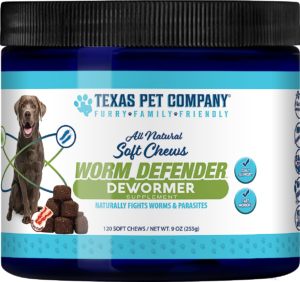New To Deworming Of Dogs? Don’t Worry.
Deworming of dogs and all pets has always been a topic of discussion. All the pet parents need authentic information about how and when to deworm their precious pets. Generally, the deworming of any pet should start when they are young. This is because worms are not just acquired from the surroundings, but can be inherited from the infected parent as well. The deworming of puppies and kittens is essential to protect them from developing adult worms inside their little bodies. It also ensures their safety from various worm-related infections. Regular deworming of dogs helps maintain their overall health.
Which worms are generally found in dogs? The answer is that there are various worms that can be eliminated and the infections spreading from these can be controlled. There exist Roundworms, Whipworms, Hookworms and Tapeworms that are the prime worms affecting the dog’s organs specifically intestines. Additionally, there are hearworms that can effect dogs, however those are internal parasites affecting the heart versus instestinal worms.
Intestinal worms and Heartworms are treated differently. For the purpose of this post, we will discuss intestinal worms.
A little insight into the activities of these worms will enable you to understand the necessity of deworming a dog.
Understanding the importance of deworming of dogs is crucial for every pet owner. By being proactive, you can help prevent serious health issues caused by these parasites.

Roundworms:
In appearance, they look like long strands of noodles and are usually found in the intestines. They feed on the partially digested food by the pets and are found in abundance. The larvae of these worms are easily transferable from the dog mothers’ milk. If the worms get infested in the dog’s body by external means like if the dog licks the eggs or another pet’s feces, then it may cause serious damages.
Whipworms:
The name suggests the look of these worms, thread like structures with one end wider than the other. To be usually found in large intestines, whipworms leads to tremendous weight loss in the dog that it infects.
Hookworms:
More often spotted in dogs, these parasites if severely infested in the dog’s body, can turn them into anemic. The common signs reflecting hookworm infection are diarrhea, anemia, loss of weight etc.
Tapeworms:
Recognized as flat, small rice or grain like structure, these worms can be infested in the dog’s body either by external environment or by fleas. Tapeworms reside in intestines and can vary from 4-6 inches in length. They can be spotted in the stool of the dogs or near anus area.
What Should You Do Next?
After the worm type has been identified, there are easy treatments for your dog. You can find many different types of natural dewormer for dogs or medicated dog dewormers from pet stores to online pet stores and some of the major retailers of pet products. Dewormers can come in the form of pills, soft chews, liquid or injection. Make sure you understand how to do it. Each company and type of dewormer could have different directions.

The frequencies at which the pets should be dewormed vary with their age. For puppies – treatment should be done at 2, 4, 8, 12 weeks of age, followed by 4, 5, 6 months of age. While for the adult dogs, they must be dewormed at every 3 months of interval and 6 weeks in case of hydatid infection. Rules also apply for pregnant and lactating dogs. They must be de-wormed before the mating process, 10 days before whelping followed by 2 and 4 weeks of interval’s time for after whelping de-worming.
For kittens, de-worming should be done in every 2 weeks from 6 weeks of age to 3 months. Followed by, de-worming them every month until 6 months of age. The adult cats must be treated in the same way as adult dogs i.e. at every 3 months of interval.
Adhering to these deworming steps and using the proper dewormers for dogs, no harm can be caused to them. Choice of the treatments should be perfect and ideal according to the dog’s health.
Consult with your veterinarian for the best practices for the deworming of dogs.
Regular check-ups can assist in the effective deworming of dogs and early detection of problems.
Source by Eugene Hix

Read The Top Article
on
Dog Wormer Soft Chews – No Rx Needed
Natural & effective dog wormer without Rx. Treat & control roundworms, hookworms or tapeworms in your dog with these bacon-flavored treats for dogs. Keep your dog healthy & worm-free with Worm Defender Dewormer for dogs.








